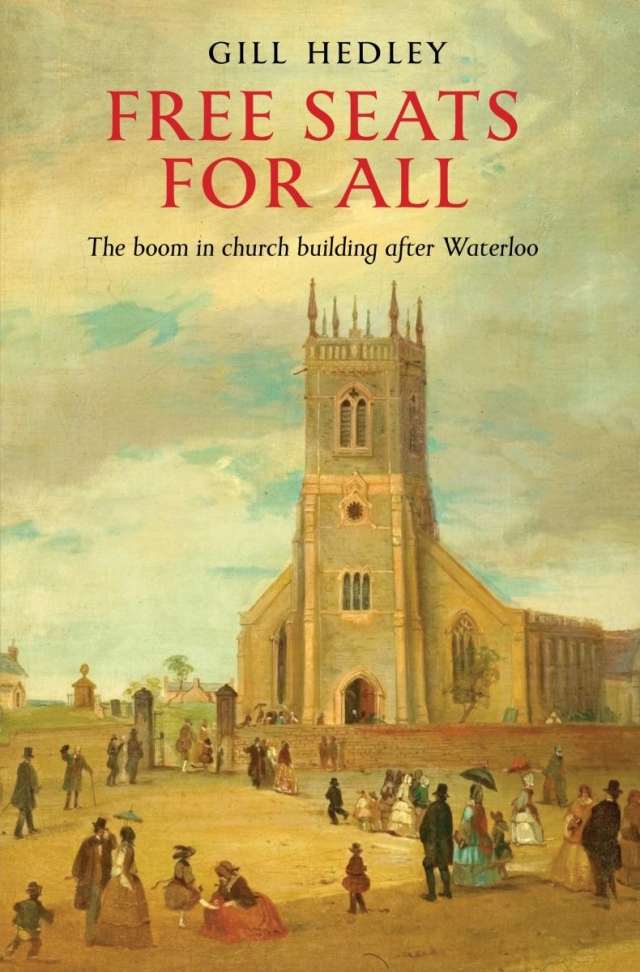Free Seats for All
Book review

The boom in church building after Waterloo
Free Seats for All: The boom in church building after Waterloo, Gill Hedley, Umbria Press, 2018, 20p, £20-00, ISBN 978-1-910074-16-1
This is a welcome addition to our detailed understanding of the growth of Anglican church building in the 19th Century. It stands as a very helpful complement to M.H. Port’s Six Hundred New Churches: The Church Building Commission 1818-1856 (1961). This latter has always been a very helpful resource in enabling the study of ‘Commissioners Churches’ funded by the British Government in the first half of the 19th Century.
This new volume now charts the emergence and progress of the Incorporated Church Building Society (ICBS) from 1818 onwards. Unlike the Church Building Commission (CBC) the ICBS raised funds from private sources and it is estimated that, by comparison with the CBC’s 600 churches, by the time it became part of the National Churches Trust in 2007, it had contributed to the construction of 3,508 new churches and to the rebuilding and enlargement of a further 10,314. This provided a further 2.4 million new seats in Anglican churches, of which 86% were free. This approach in itself was in contrast with the churches provided by the CBC which still had a predominance of reserved seats.
The second crucial hallmark to identify about the ICBS is that it was to a large degree working in partnership with local church communities. The illustrations on the cover confirm this detail: they show wooden information plaques, which we often pass by, which confirm that a grant had been received on condition that ‘the sittings’ be free, sometimes additionally committing the specific church to an annual collection for the Society.
One specific ICBS church that many Historical Association members do see en route to Headquarters in Kennington is St John’s Waterloo Road, at the foot of Waterloo Bridge. Its spire was described by Sir John Summerson as ‘the kind of tower Ictinus might have put on the Parthenon if the Athenians had had the advantage of belonging to the Church of England’.

